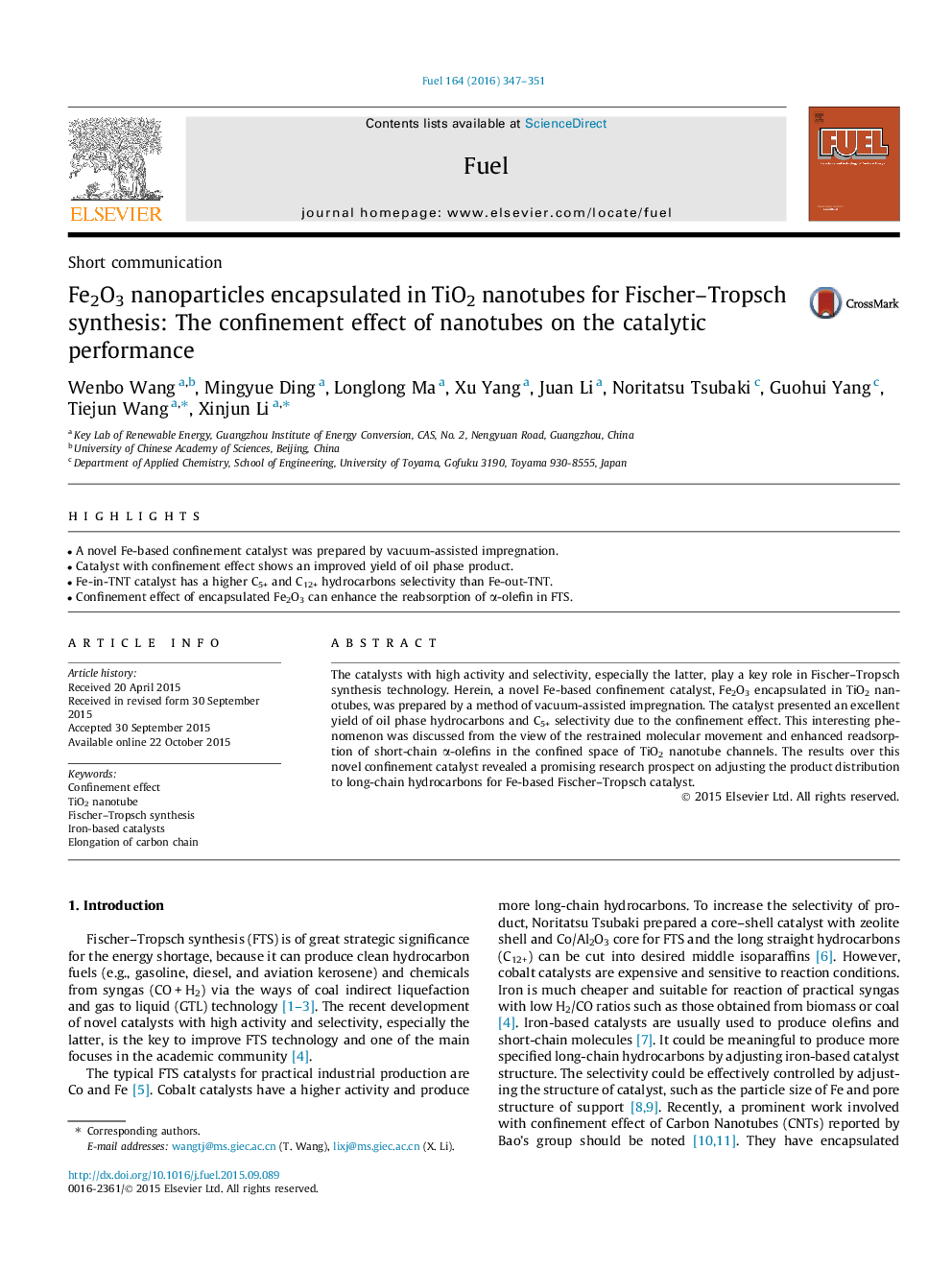| Article ID | Journal | Published Year | Pages | File Type |
|---|---|---|---|---|
| 205415 | Fuel | 2016 | 5 Pages |
•A novel Fe-based confinement catalyst was prepared by vacuum-assisted impregnation.•Catalyst with confinement effect shows an improved yield of oil phase product.•Fe-in-TNT catalyst has a higher C5+ and C12+ hydrocarbons selectivity than Fe-out-TNT.•Confinement effect of encapsulated Fe2O3 can enhance the reabsorption of α-olefin in FTS.
The catalysts with high activity and selectivity, especially the latter, play a key role in Fischer–Tropsch synthesis technology. Herein, a novel Fe-based confinement catalyst, Fe2O3 encapsulated in TiO2 nanotubes, was prepared by a method of vacuum-assisted impregnation. The catalyst presented an excellent yield of oil phase hydrocarbons and C5+ selectivity due to the confinement effect. This interesting phenomenon was discussed from the view of the restrained molecular movement and enhanced readsorption of short-chain α-olefins in the confined space of TiO2 nanotube channels. The results over this novel confinement catalyst revealed a promising research prospect on adjusting the product distribution to long-chain hydrocarbons for Fe-based Fischer–Tropsch catalyst.
